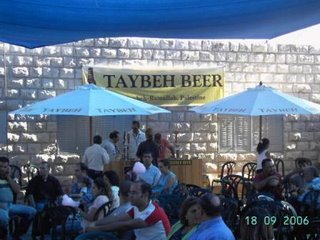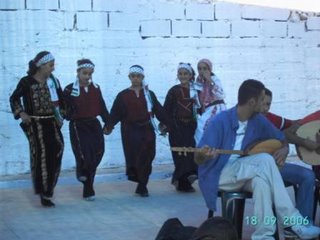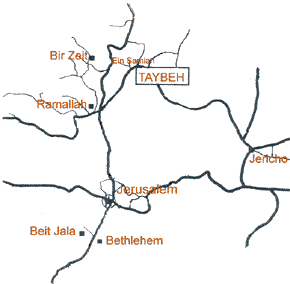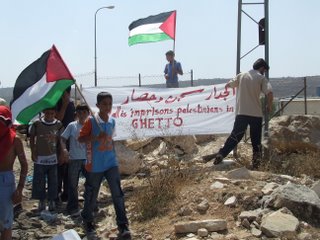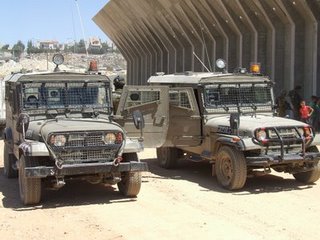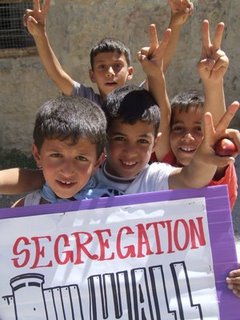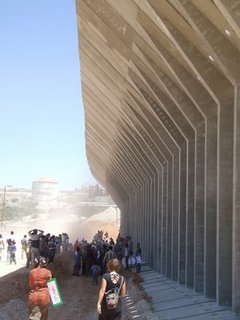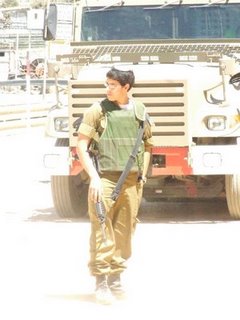
AMIRA HASS
Six Palestinian churches in the West Bank and Gaza Strip suffered damage and arson attempts in reaction to the words of Pope Benedict XVI. Palestinian spokesmen of all stripes condemned these attacks and said that the Palestinian nation - Christians and Muslims alike - is one, and is united in its struggle against the occupation. Reports on the attacks in the Palestinian media described the perpetrators as "unknown." In the Palestinian subtext, "unknown" implies "of suspicious identity," a phrase that borders on a half-concealed accusation that Israel's Shin Bet security services sent agents provocateurs.
In Tubas, where an attempt to set fire to a church failed thanks to the residents' alertness, people said openly that the thrower of the Molotov cocktail might be connected to the Israeli occupation. But the mayor of Tubas, Oqab Darghmeh, who raised this possibility, also proposed another option: Perhaps the perpetrator acted out of ignorance.
Most of the critics, however, did not point an accusatory finger at the Shin Bet. They cannot deny the ills that have become so widespread in Palestinian society: criminal behavior and hooliganism masked by the images and jargon of a national struggle, and the growing use of weapons in personal and public conflicts, with the encouragement of Palestinian political actors, who are in need of the atmosphere of chaos in order to be seen as "strong."But is it possible to separate these ills completely from the Israeli occupation?
The latest book by historian Hillel Cohen, Aravim Tovim ("Good Arabs"), offers several historical proofs of the validity of Palestinian "paranoia" about the political motives behind security control. Although the subject of the book is the activity of Israeli security and intelligence agencies among Israeli Arabs immediately after 1948, a consistent policy of action and thought that stretches from the Mandate years until the present allows us to draw conclusions that also apply to Israeli control over the Palestinians in the West Bank and Gaza.
Cohen's research relies mainly on police documents from the period, which have recently been opened for public perusal (the Shin Bet documents are still classified). They relate, for example, that the provision of weapons to collaborators by the local authorities was a way of rewarding them. However, the security forces' liaison committee mentioned in 1949 that "the distribution of weapons to an element or members of one group is likely to be useful to us; it will create the desired tension among the various parts of the population and enable us to control the situation." The security agencies, Cohen reveals on the basis of written documents, occasionally even initiated internal conflicts.
Moreover, the regional committee for Arab affairs in the Triangle (the body that coordinated among the various security agencies in this region) "does not approve of providing the residents of the region with higher education," according to the minutes of a 1954 meeting, and the committee worked to prevent Arabs from being accepted to institutes of higher education. Cohen allows himself to speculate that the motive was its desire to prevent the creation of an educated class that would succeed in organizing and making demands of the state.
In other words, the security services - even if they acted on their own initiative in various places - operated in the context of an official paradigm: continued theft of lands, continued fragmentation and weakening of Arab society, and undermining the possibility of the Arabs developing an independent leadership. Critics of the Military Administration's policies - Israeli Arabs and the main opposition party, Maki (the Israel Communist Party) - were described as "paranoid." But Cohen, in the many examples he brings in his book, retroactively proves that they were right.
Indirectly, this book by a former journalist says that one does not have to rely on written documents - which will be made public in another 50 years - in order to believe a political analysis that differs from that of the rulers. Hence, it was not simply shortsightedness and neglect that caused the Palestinian territories to be flooded with weapons during the 1990s. It was not "security" that led to the creation of a class of new mukhtars from Fatah, who received special privileges that were denied to other Palestinians and that deepened internal tensions. It was not "shortsightedness" that led to the weakening and political trivialization of Mahmoud Abbas (Abu Mazen) as chairman of the Palestinian Authority, just as it was not simple naivete that omitted the main point from the Oslo Accords: the goal of a Palestinian state within the 1967 borders.
It is not local decisions by regional military commanders that are fragmenting the West Bank into isolated "territorial cells." It is not security considerations alone that prevent Gazan students from studying in the West Bank and American academicians from teaching in Palestinian educational institutions. In the name of security - but not for its sake - Israel is exacerbating ignorance and economic deterioration in the occupied territories. According to this analysis, for which there is no shortage of evidence, the Israeli security services are careful to act within the framework of a clear political paradigm: maximum weakening, in every possible way, of the Palestinian national collective, so that it will not be able to realize its goal and establish a state worthy of the name, in accordance with international resolutions.
Amira Hass writes for Ha'aretz. She is the author of Drinking the Sea at Gaza.

